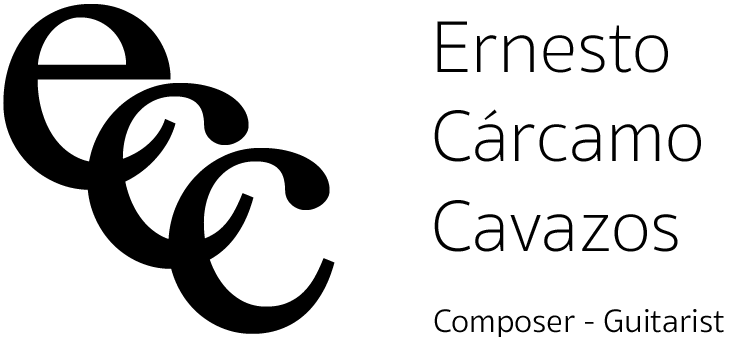VOCES (2019)
Commissioned by the Center for Victims of Torture, Voces is an installation for 16 cassette tapes and 4 portable cassette players. The commission asked to create a sound installation that reflects the experiences of women in the Central American migrant caravan traveling through Mexico to seek asylum in the United States.
Using over 100 voice samples from interviews of women speaking about their experience and over 150 instrument samples, a custom built Max/MSP patch was used to generate 7 minute-long pieces in real-time using only these samples, the longest of which lasts 10 seconds. Although the samples were chosen carefully and the structure composed strategically to be musically consistent and recognizable, the patch’s aleatoric nature builds a unique 7 minute piece every time, representing the individual experience each woman in the caravan has, yet how similar they are to one another.
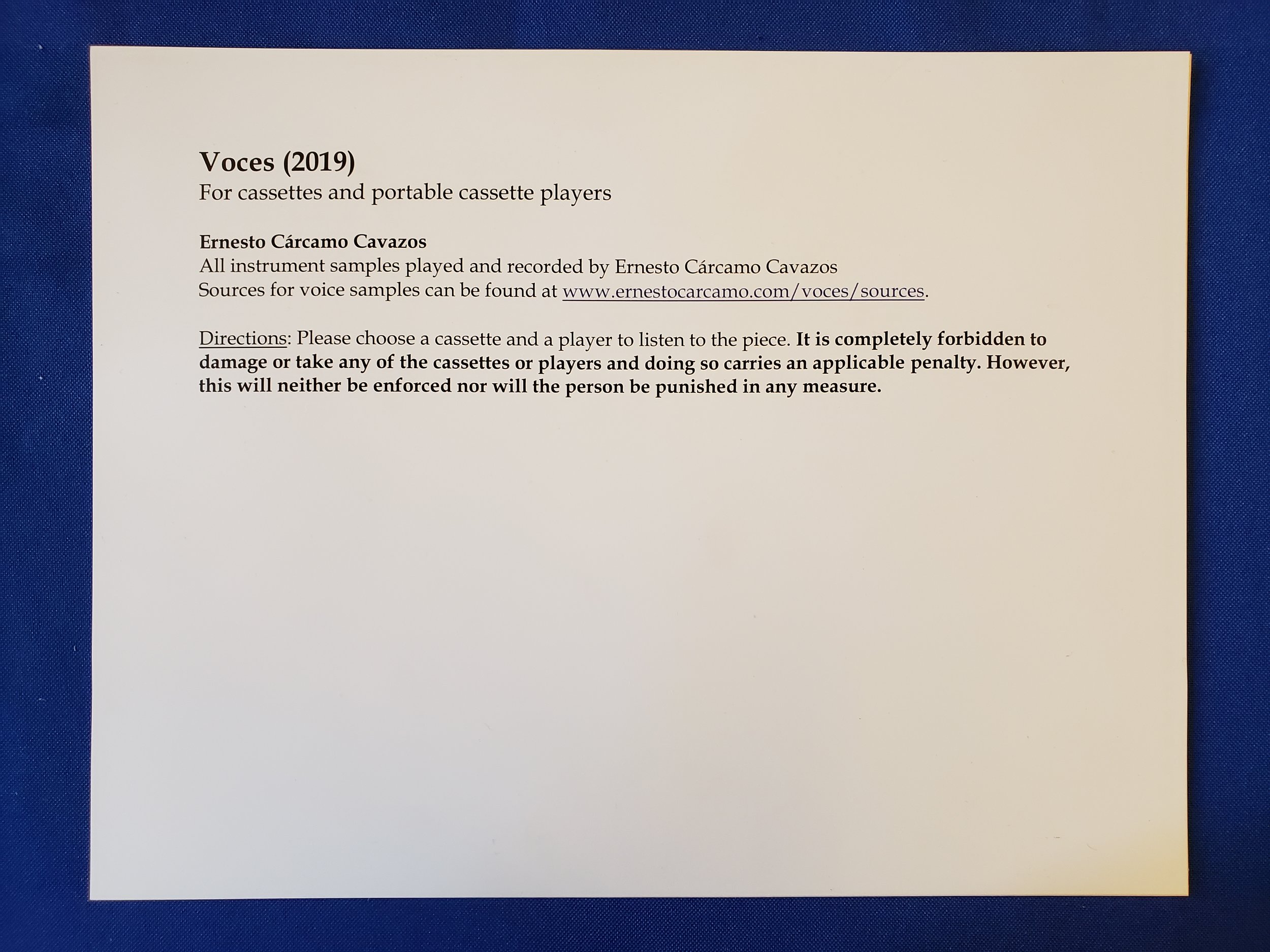
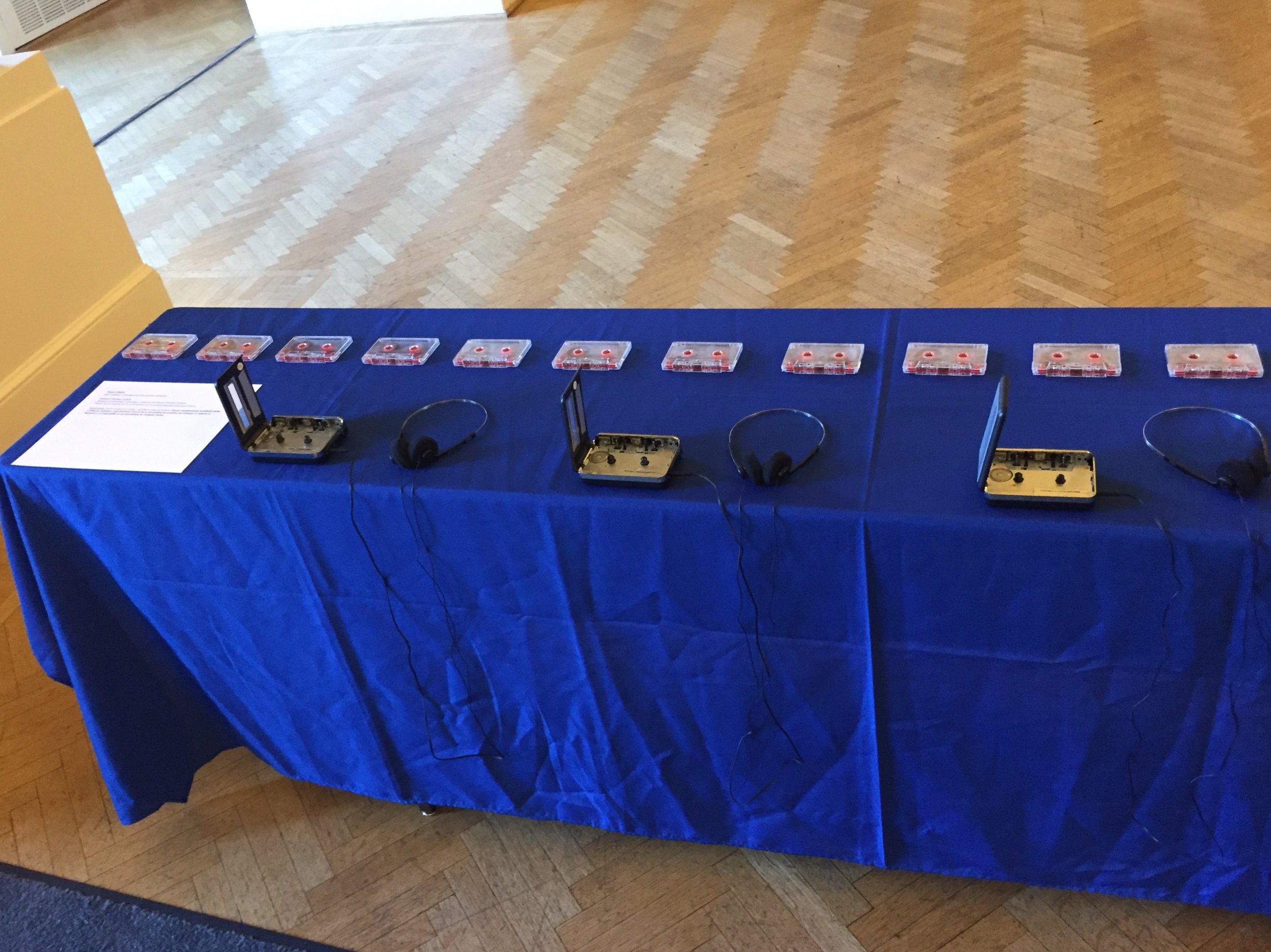
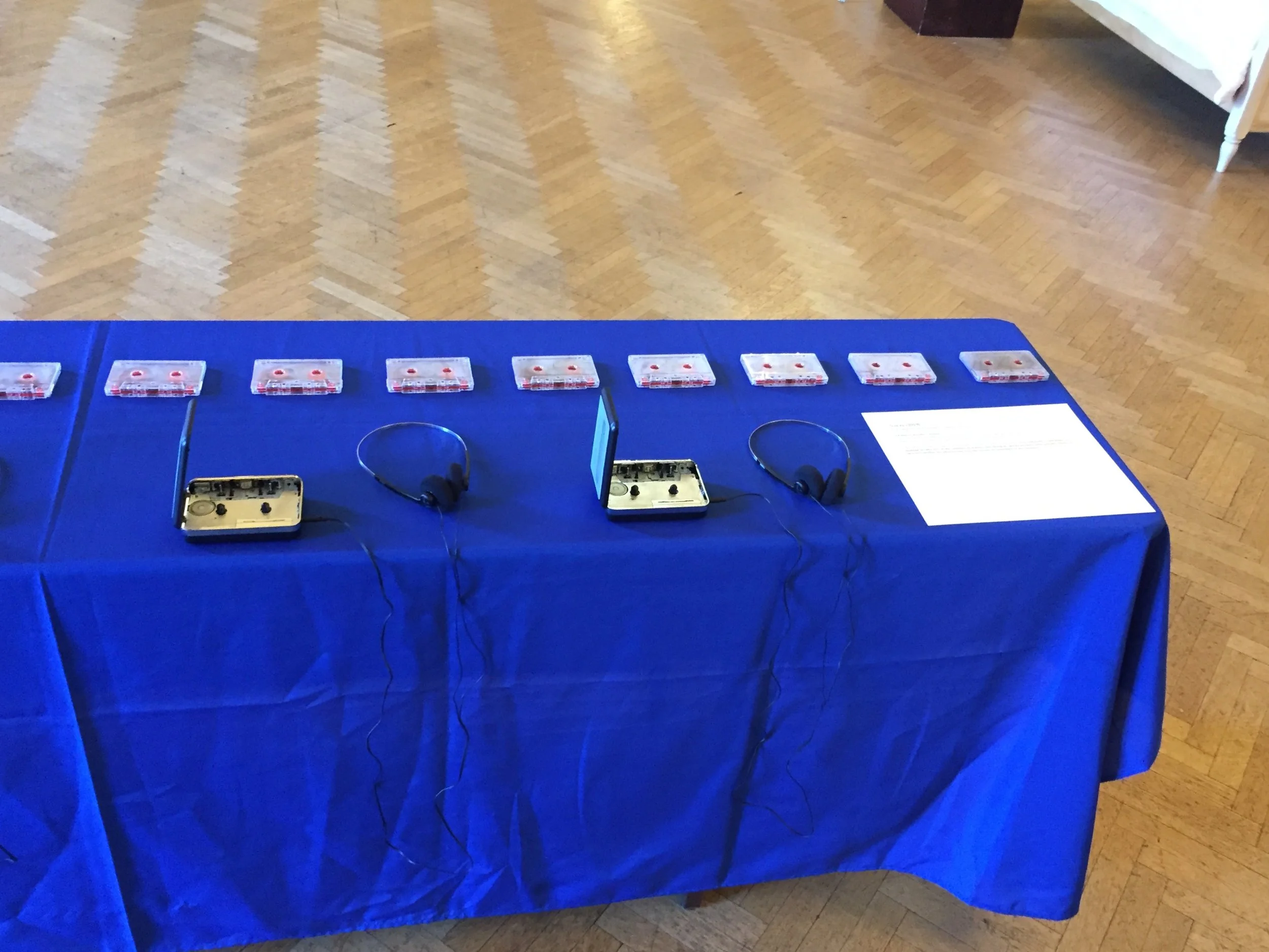
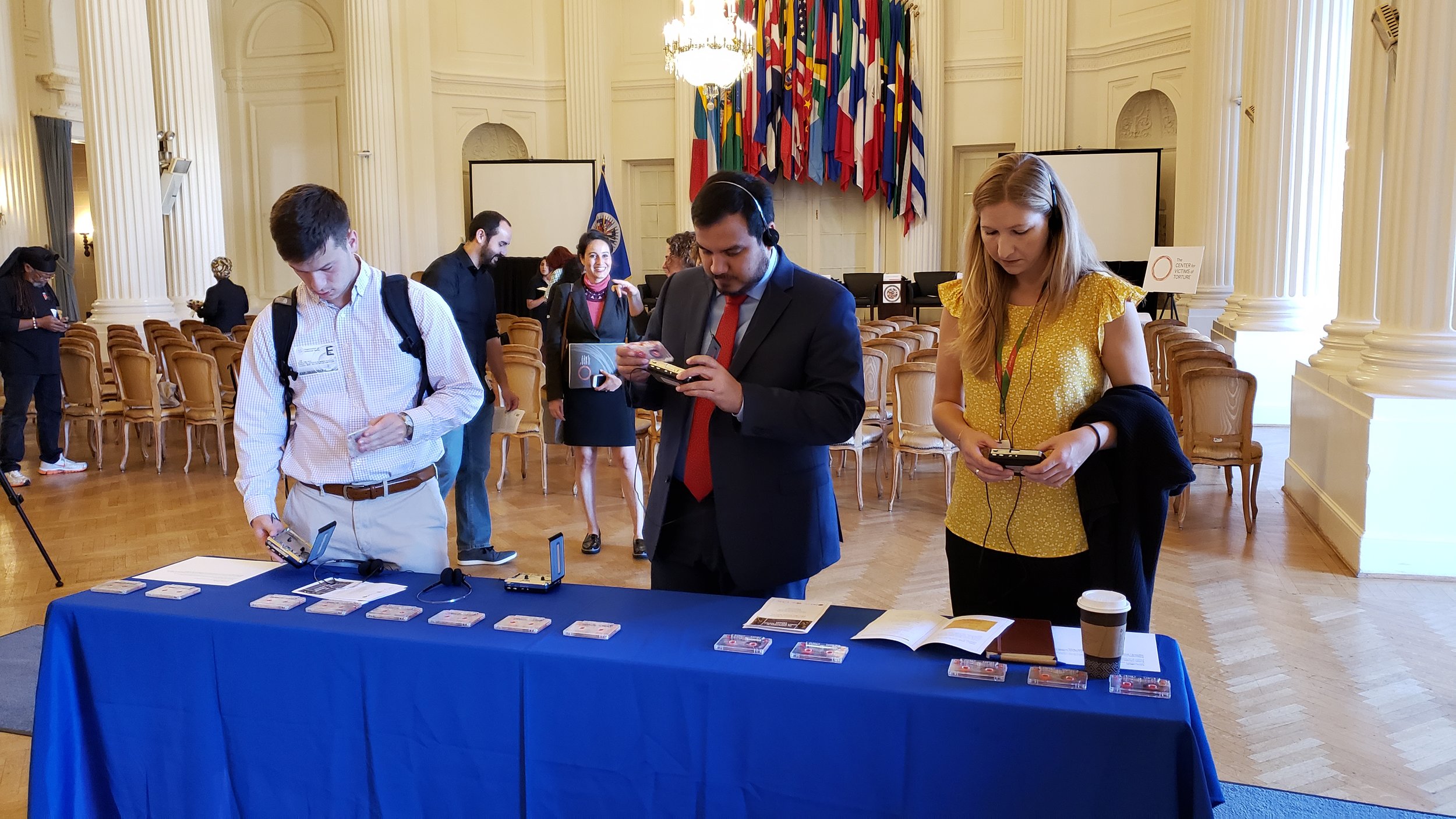

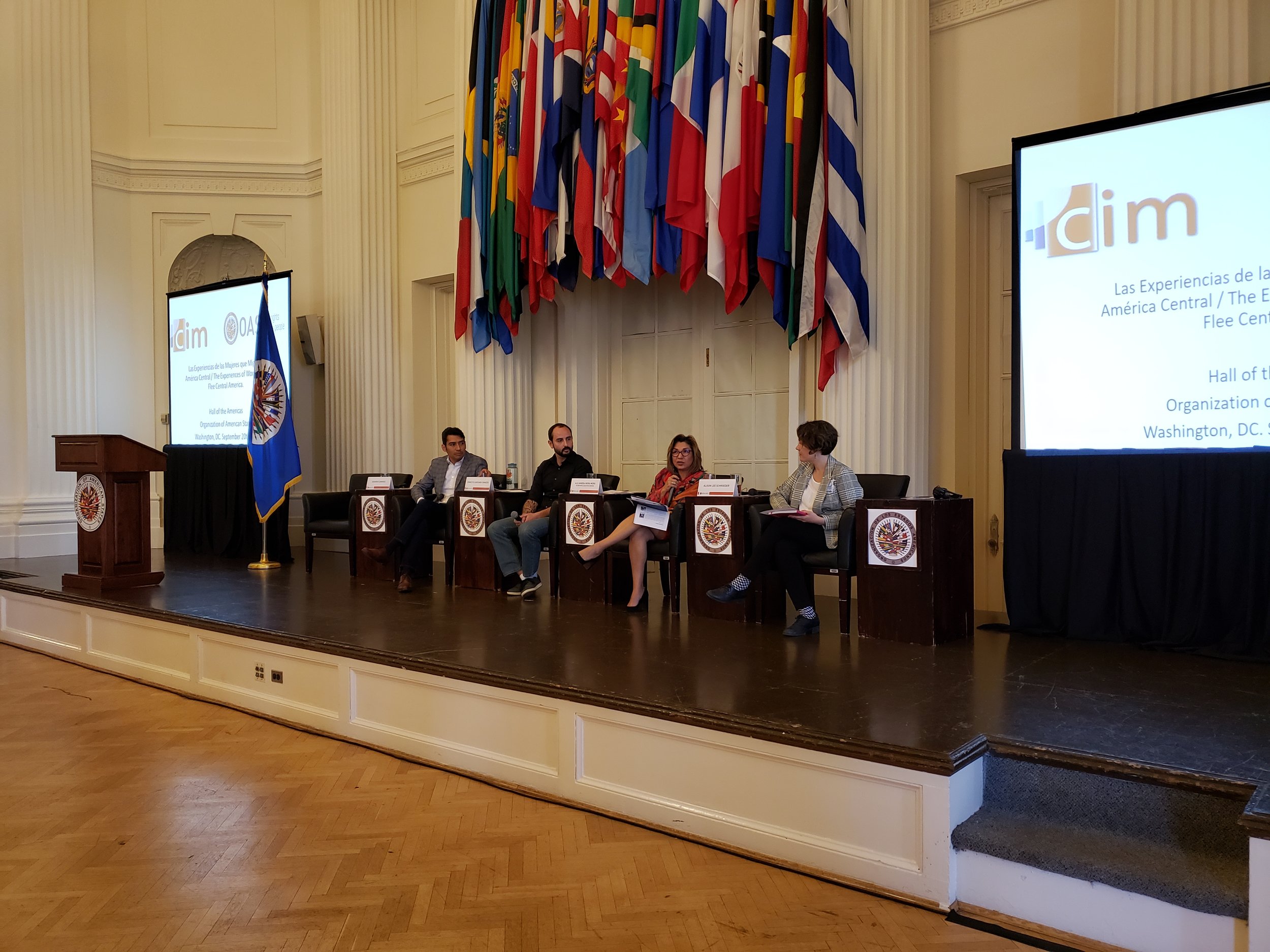
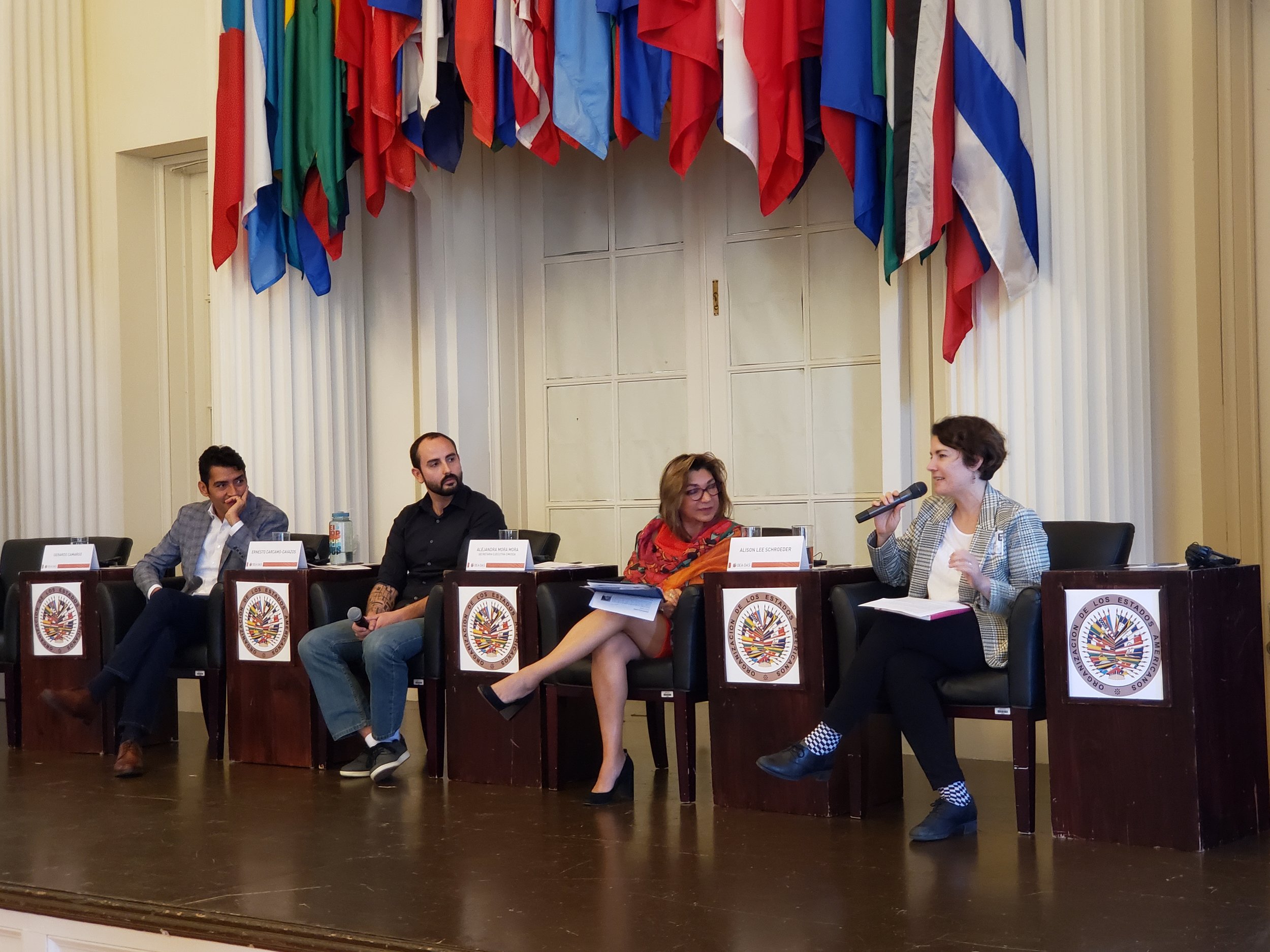
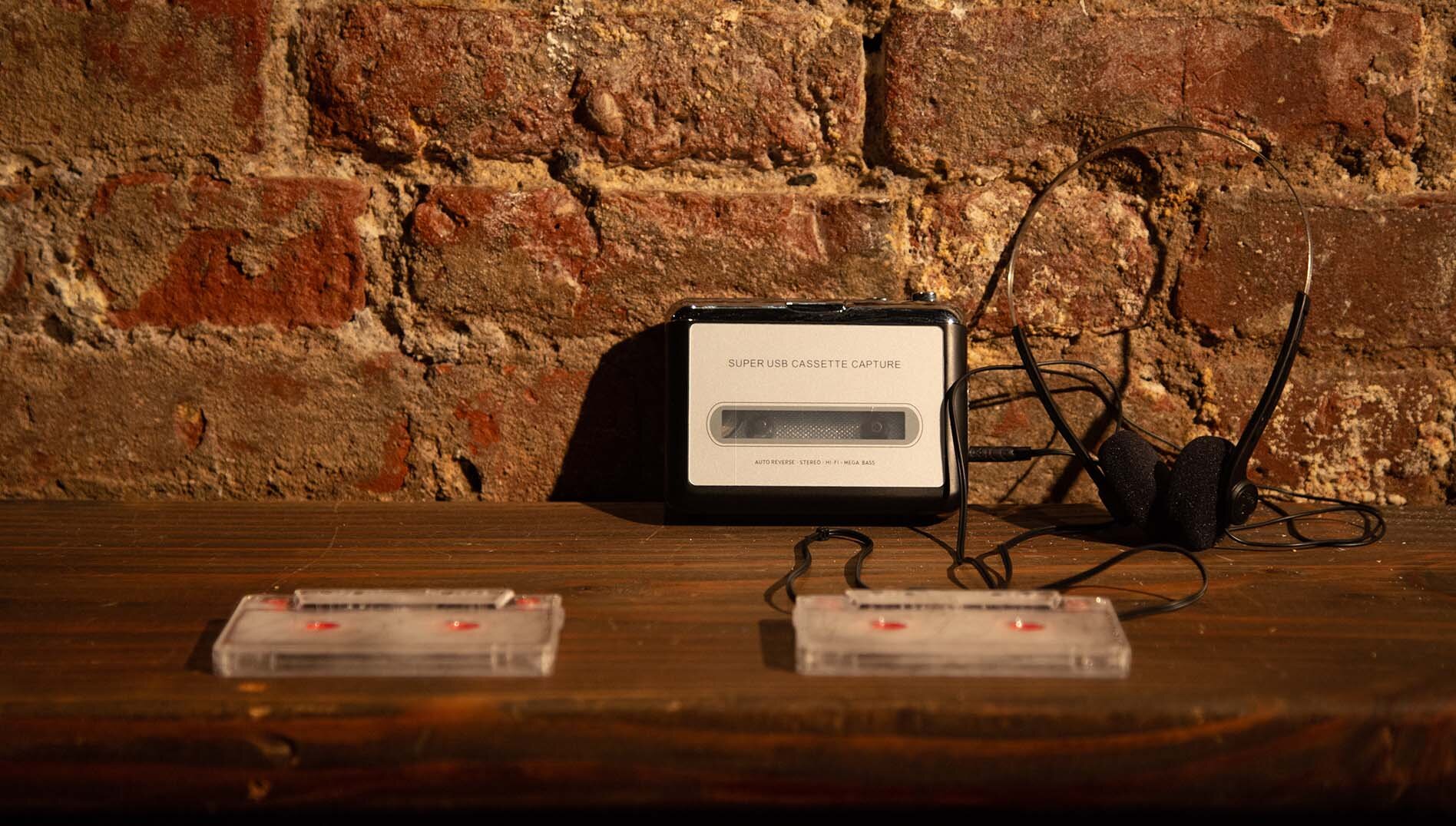
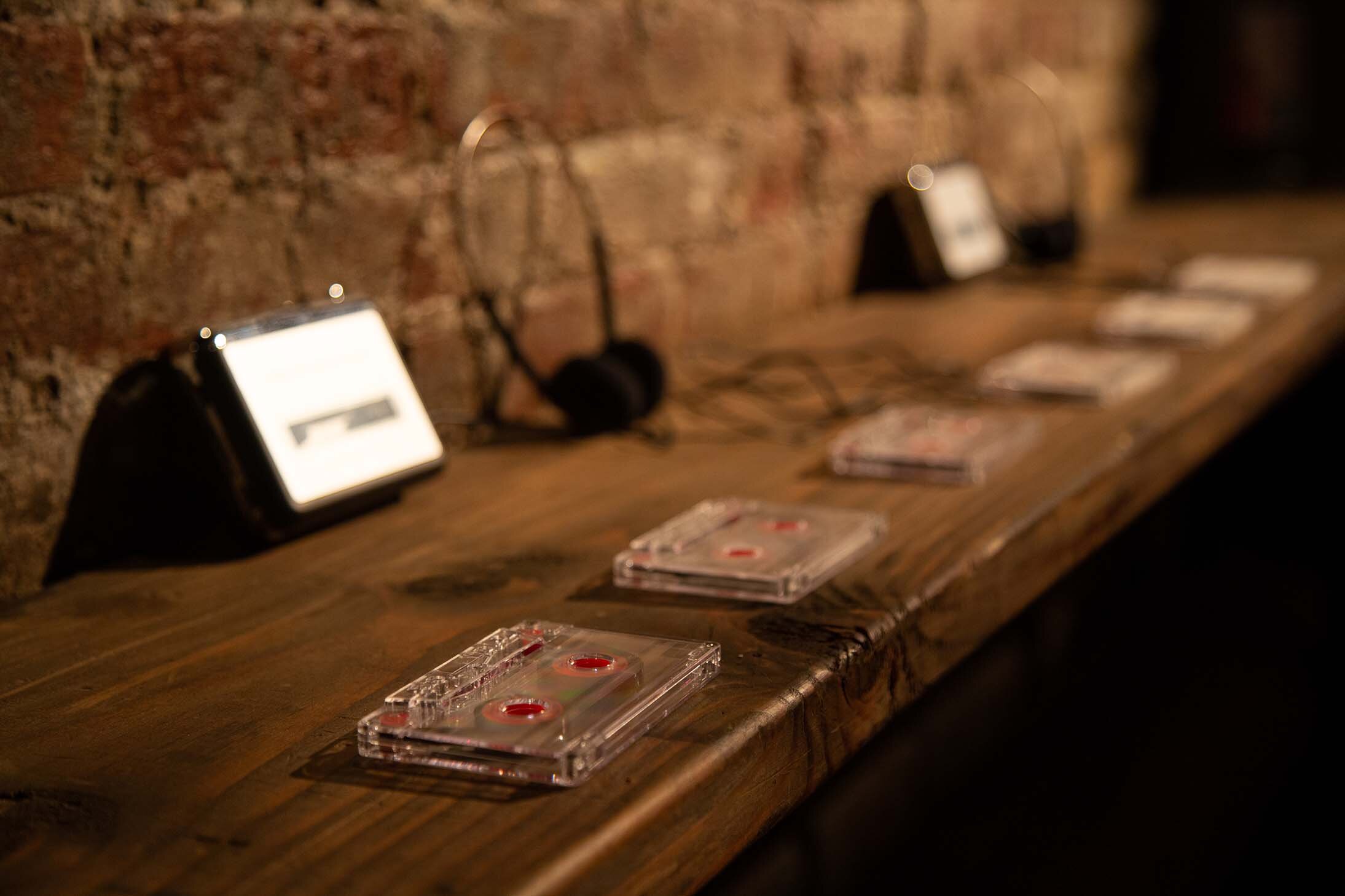
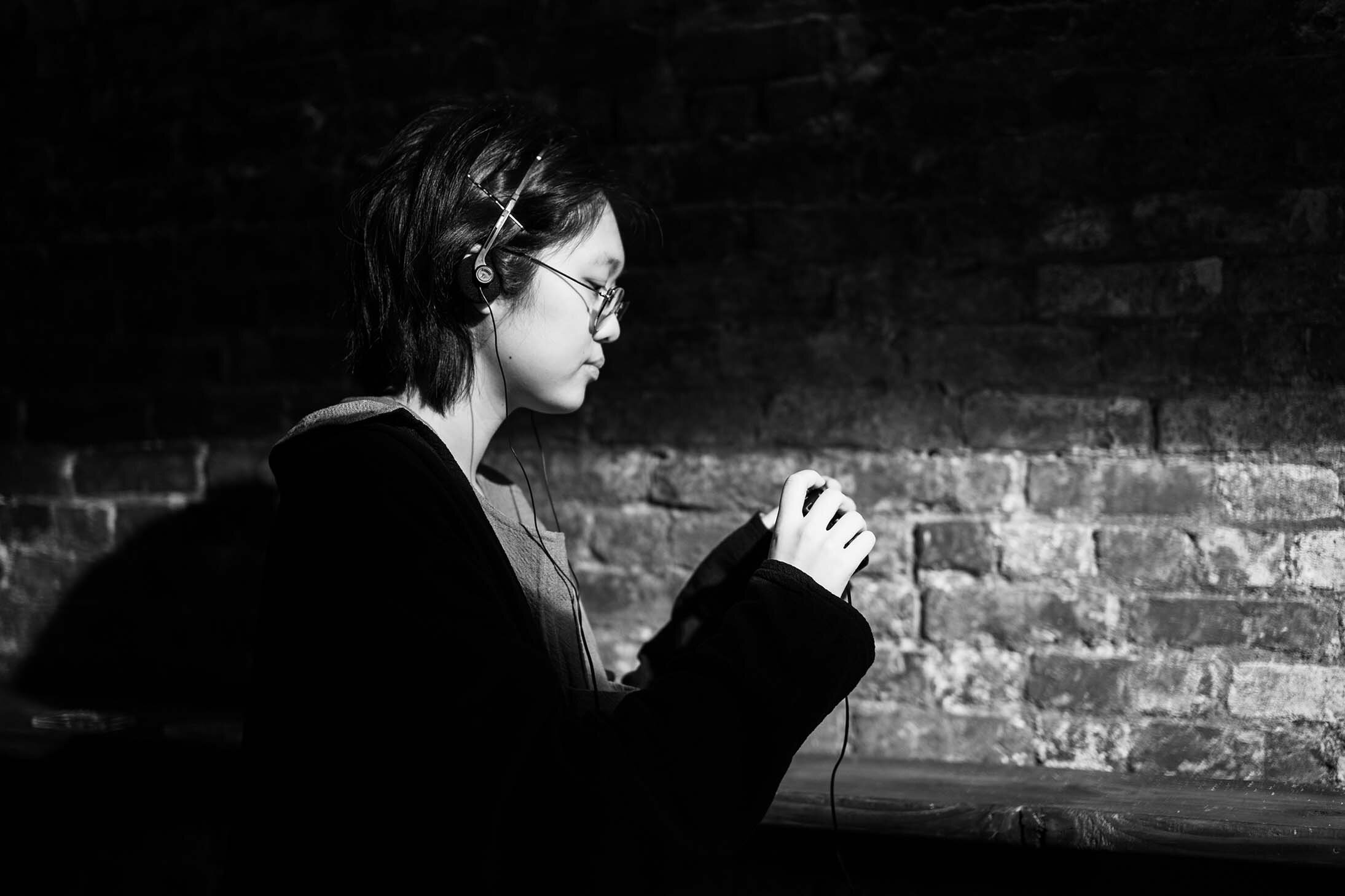
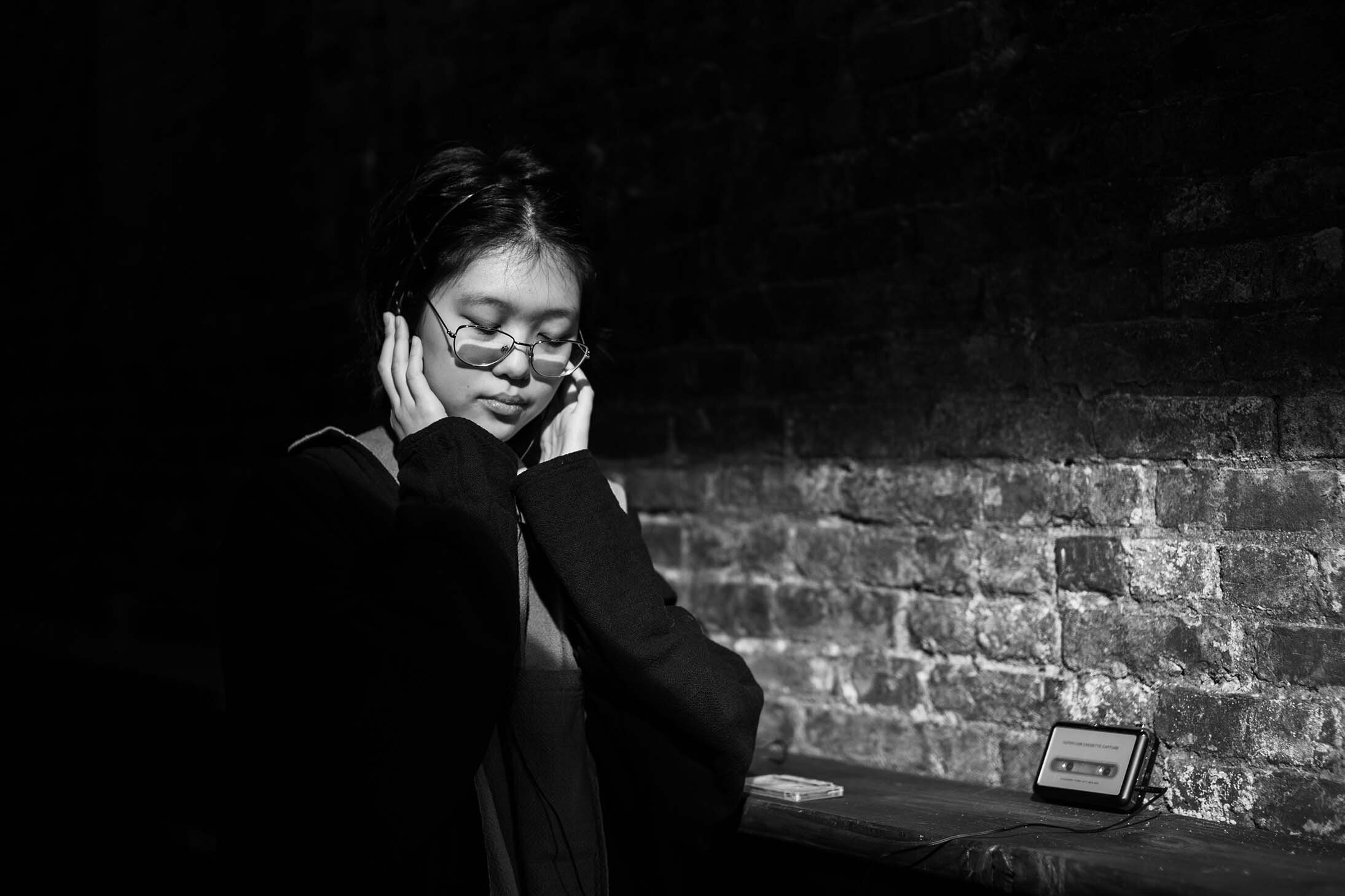
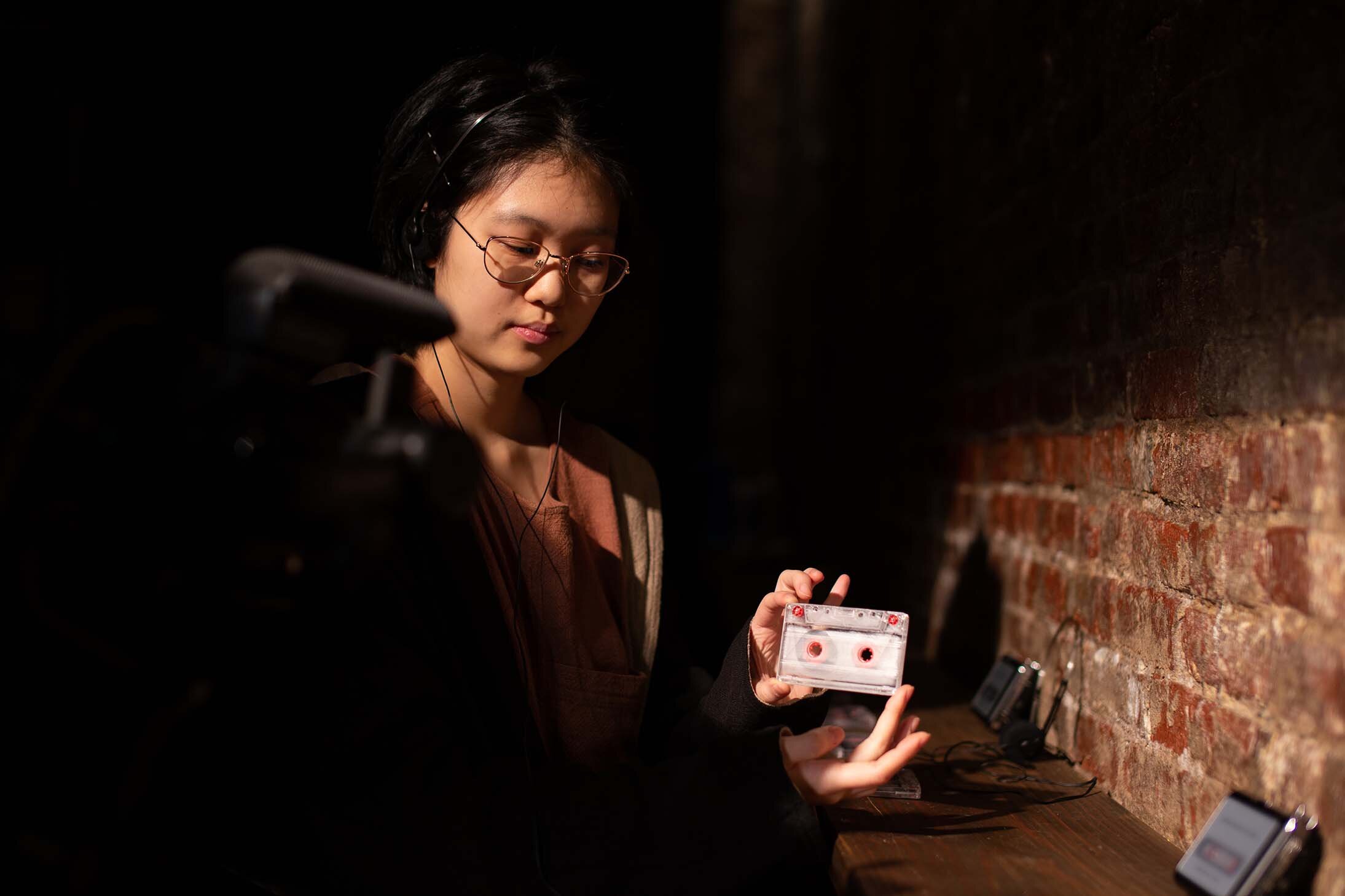
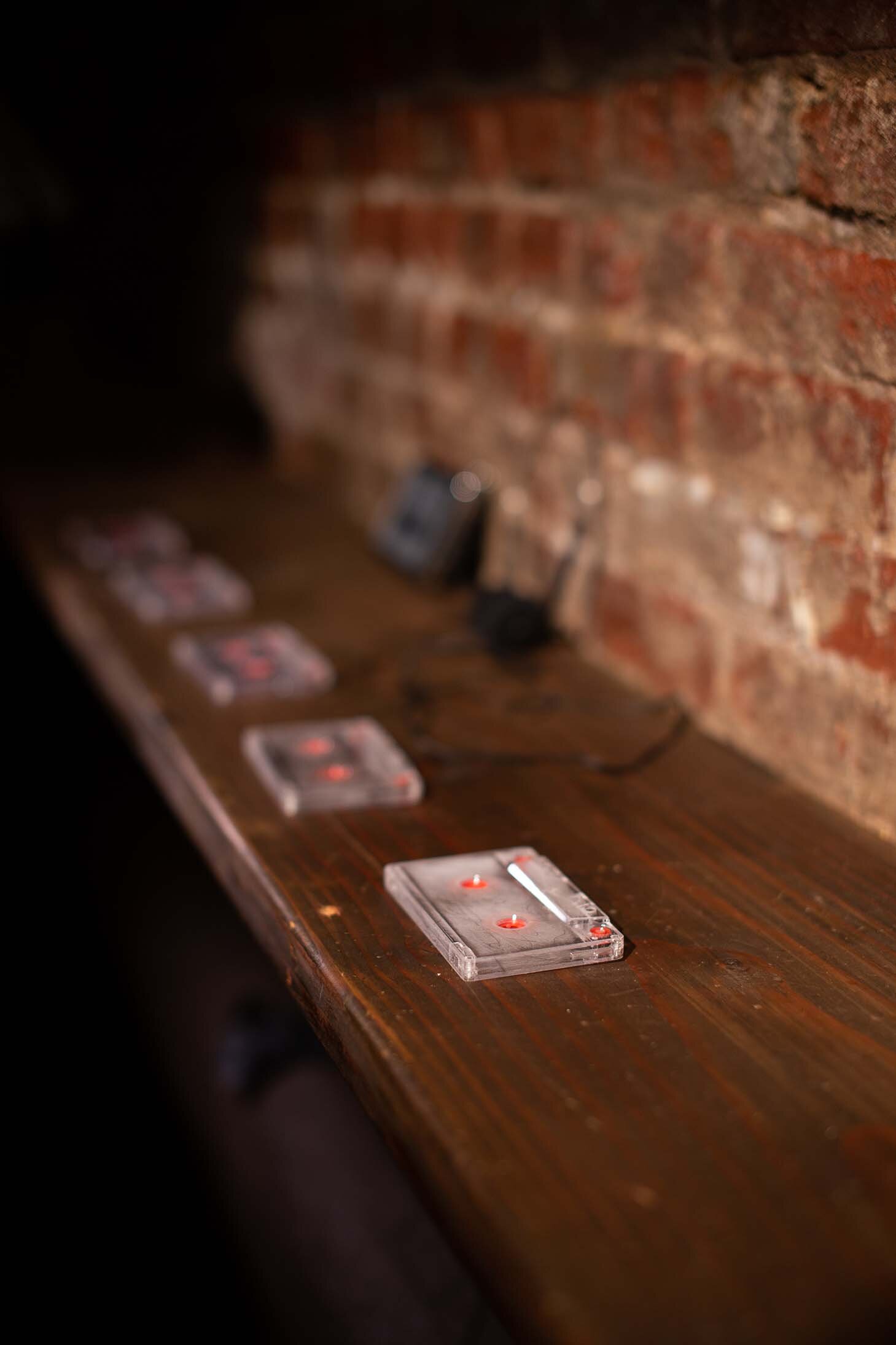
Photographs by Violeta Colmán, Ernesto Cárcamo Cavazos, and Culture Hub NYC
Four of these 7-minute “marches” were chosen to be recorded onto cassette tapes (2 marches per cassette side) and exhibited. Cassette tapes and players were chosen because of the mechanical decay that inevitably occurs as a tape deforms and play heads wear down, gradually deforming the pieces sonically as they are played over and over again. Each cassette was also physically damaged to some degree, the damage becoming more severe with each tape so that the 16th tape is so damaged that the audio is unrecognizable. This was consciously done to allude to both the physical aggression many of the women experience in their home countries and throughout the caravan, and the toll that walking such long distances takes on them, some even taking the trip more than once. The cassettes, as the women, are worn down each time a march is done, until they are unrecognizable and forever silenced.
The installation was first exhibited at the Organization of American States main building in Washington D.C. on September 20th, 2019, as part of the forum “The Experiences of Women Who Flee Central America,” after which a panel with the artists was held to explain the methods and symbolism behind the work. The installation is now in the possession of the Center for Victims of Torture and will continue to be exhibited at their discretion.
The installation was also exhibited on March 14, 2020 by Culture-Hub NY as part of the Re-Fest festival that, due the Coronavirus pandemic, it had to take place virtually.
